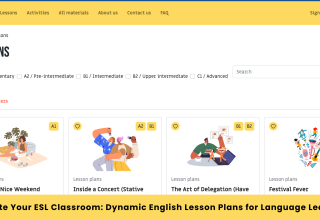Apart from the parents, the teachers are the second most important figures when it comes to the development of kids. A lot of children either love or hate a subject solely because of the way a teacher interacts with them or the way in which they present the material.
Additionally, there are a lot of kids that can’t pay attention in school, and they can’t master the material. For that reason, plenty of parents look for private tutors that will aid in the process. However, there’s a difference between a tutor, a teacher, and an educational therapist. Click here to read more.
A tutor is someone who specializes in a certain field. They usually have a degree in the subject, and they can help with assignments or classes. That might not be the core of the problem. Educational therapists are specialized in the way each individual learns, and that could make the difference between instilling healthy habits or paying for tutors every year.
How will that help?
Youngsters that struggle at school are not happy. Imagine yourself in their shoes. How would you feel if everyone else except you could pass a subject and you were the only one who failed? There are plenty of attention or learning disorders that could cause this.
However, most parents don’t know how to notice these patterns, and years could pass by. The same thing is true about teachers. Working with educational therapists helps to recognize these issues and then teach the kids the abilities they lack and devise techniques that compensate for the shortcomings while improving on the strengths.
These specialized people are experts when it comes to establishing new habits that improve on the deficiencies. If your child doesn’t want to do homework, you could easily brush that off as a tantrum, acting out, or avoidance of responsibility, or even impulsivity and resistance to authority. Follow this link for more info https://theconversation.com/back-to-school-how-can-parents-best-help-children-deal-with-covid-anxiety-167216.
It takes a trained eye to look through the psychology that’s happening. ETs, specialize in the cognitive and the emotional aspects of the learning process. If a child is falling behind, they’re usually frustrated and concerned about why they aren’t doing well.
If they try and fail again, they could start hiding the fact that something is wrong and start hating particular subjects. That’s mostly seen in kids that have dyslexia. They don’t want to tell anyone that they can’t sound out words or decode them.
This hiding process can last up to the fourth grade, but then comprehension gains another level which they can’t overcome. The duty of experts is to help in two ways. The first one is with self-esteem, and the second one is with abilities. You always need to go back to where the child feels comfortable, and they can overcome a challenge. This improves the skills that can be transferred to other assignments.
Recognizing the reasoning
Whenever children have learning disabilities, they also don’t know the difference between tutor vs teacher and how to organize their work. Planning is something that needs to be worked on, and specialists can help to push them in the right direction and make sure they finish what they start.
This is important in all aspects, and it especially helps with starting out, which is the biggest hurdle that needs to be passed. Another challenge that defines virtually all kids that experts interact with is that they don’t know how to orderly complete their work.
Without mastering the mentality of planning, they will always experience anger and frustration when they need to deal with schoolwork. They need to understand that homework needs to be completed for a reason and that it has a specific purpose.
Most teachers don’t spend time explaining to their students that finishing their homework will help their organizational skills and that it will reinforce their learning. That’s why you need to assist in their comprehension that what they’re doing has a purpose.
Usually, kids with learning disabilities hold back their cognitive skills for something they know will make them happier. That’s why you need to start helping them early and give them challenges that will make them feel accomplished. At the start, you need to instill a reward-based relationship where they will get something for trying. Eventually, they will learn how to beat procrastination and do everything on their own.
Read More: 4 Educational Activities with Your Kids During School Holidays











